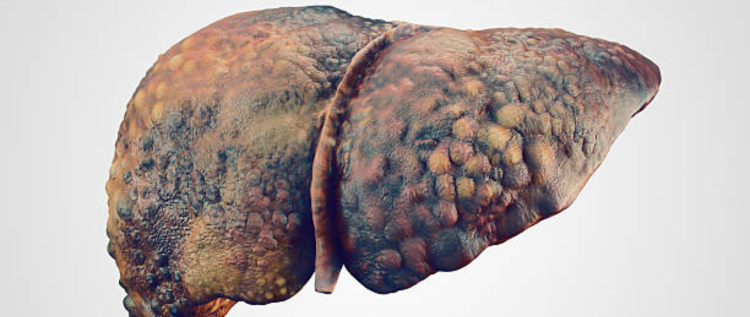
Liver failure is a serious condition where the liver loses its ability to function effectively. It can occur suddenly (acute liver failure) or develop over time (chronic liver failure), often as a result of prolonged liver damage.
Causes of Liver Failure
-
Chronic Viral Hepatitis: Infections with hepatitis B or C viruses can lead to chronic inflammation and damage to liver cells over time.
-
Alcohol-related Liver Disease: Excessive and prolonged alcohol consumption can cause liver inflammation (alcoholic hepatitis) and eventually lead to cirrhosis and liver failure.
-
Non-alcoholic Fatty Liver Disease (NAFLD): Accumulation of fat in the liver can progress to inflammation, fibrosis, and cirrhosis, increasing the risk of liver failure.
-
Autoimmune Hepatitis: An immune system disorder where the body attacks its own liver cells, leading to inflammation and potential liver damage.
-
Genetic Disorders: Inherited conditions such as hemochromatosis (excess iron storage), Wilson’s disease (excess copper accumulation), and alpha-1 antitrypsin deficiency can cause liver damage and failure.
Symptoms of Liver Failure
The symptoms of liver failure can vary depending on whether it is acute or chronic and the underlying cause, but commonly include:
-
Jaundice: Yellowing of the skin and eyes due to buildup of bilirubin.
-
Ascites: Fluid buildup in the abdomen, causing swelling and discomfort.
-
Easy Bruising and Bleeding: Decreased production of clotting factors by the liver.
-
Fatigue: Feeling extremely tired and weak.
-
Confusion or Changes in Mental Function: Due to toxins not being effectively filtered out by the liver.
Diagnosis and Treatment
Diagnosing liver failure involves a combination of medical history, physical examination, blood tests (liver function tests), imaging studies (ultrasound, CT scan), and sometimes a liver biopsy. Treatment options depend on the severity and cause of liver failure and may include:
-
Medications: Depending on the cause, medications may be used to manage symptoms, reduce inflammation, or treat underlying conditions.
-
Liver Transplant: For severe cases of liver failure, a liver transplant may be necessary to replace the diseased liver with a healthy one from a donor.
-
Management of Complications: Treatment may also focus on managing complications such as fluid buildup, infections, and nutritional deficiencies.
Prevention and Outlook
Preventing liver failure involves addressing risk factors such as limiting alcohol consumption, getting vaccinated against hepatitis viruses, maintaining a healthy weight, and avoiding exposure to toxins. Regular medical check-ups and screening tests for liver function can help detect liver disease early when treatment is more effective.
Conclusion
Liver failure is a serious condition that requires prompt medical attention and specialized care. By understanding its causes, symptoms, and treatment options, individuals can take proactive steps towards prevention and early detection. For personalized advice and treatment strategies tailored to your specific needs, consult with a healthcare professional like Dr. Ashish Kumar Jha, who specializes in liver health and can provide expert guidance and support.
